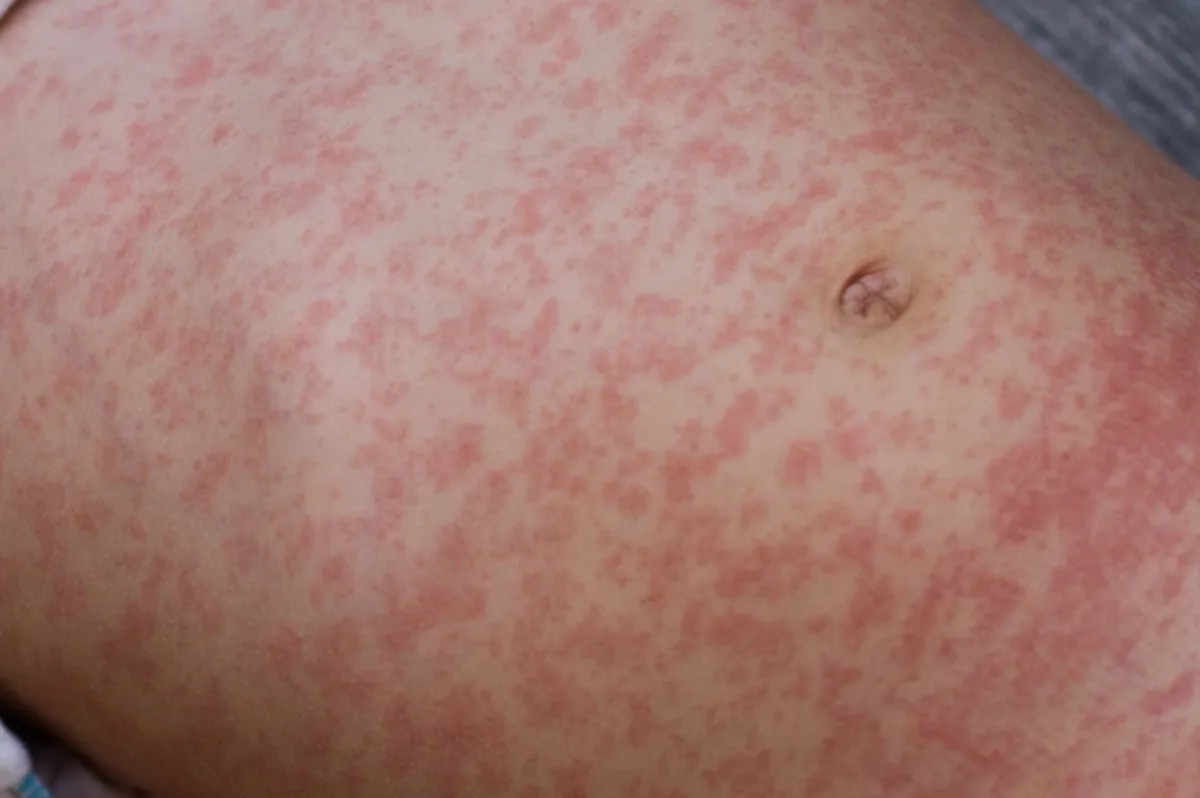
The Cook County Department of Public Health has confirmed a second case of measles linked to a 4-year-old resident from suburban Cook County. This unvaccinated child acquired the infection during international travel and was present in Terminal 5 at O'Hare International Airport on September 11. Health officials are actively working to notify individuals who may have been exposed to the virus during this time.
The potential exposure took place on Thursday, September 11, from 7:30 a.m. to 11 a.m. in Terminal 5 at O'Hare Airport. Individuals who were in the terminal during this period should be aware of the risk of infection and take appropriate actions.
For those who might have been exposed to the measles virus, it is imperative to consult with your healthcare provider regarding your vaccination status. If symptoms develop, contact your provider before visiting a medical facility to ensure proper measures are taken to prevent further exposure. Individuals who are unvaccinated against measles, mumps, and rubella (MMR) should discuss the possibility of receiving the MMR vaccine with their doctor. Receiving the vaccine post-exposure can be beneficial and is not harmful.
Vaccination remains the most effective defense against measles. The MMR vaccine is 97 percent effective after two doses and generally provides lifelong immunity. The first dose is recommended between 12-15 months of age, with a second dose given between 4-6 years old. Measles is a highly contagious respiratory disease that spreads easily through the air via respiratory droplets. An infected individual can transmit the virus to 90 percent of those nearby who are not immune.
Symptoms of measles can appear up to 21 days after exposure and include a high fever, cough, runny nose, red watery eyes, and a characteristic rash that typically starts on the face and spreads to the trunk. The contagious period begins four days before the rash appears and continues for four days afterward. Complications from measles can be severe, leading to pneumonia, seizures, hearing loss, lifelong brain damage, or even death.
The Cook County Department of Public Health is offering free MMR vaccinations to anyone in need. To make an appointment at a community health center in Chicago or suburban Cook County, call 833-308-1988. Unvaccinated individuals without a healthcare provider are encouraged to contact Cook County Health at 312-864-1111 to schedule a vaccination appointment. The Chicago Department of Public Health also provides free MMR vaccinations at various clinics throughout the city, regardless of insurance status.
The CDC recommends two doses of the MMR vaccine for lifelong protection. If you are unsure of your vaccination status, consult your immunization records. The Illinois Department of Public Health offers access to vaccination histories through the Vax Verify portal.
If you received your vaccination before 1968, it is advisable to discuss revaccination with your healthcare provider. A blood test can confirm your immunity status. Individuals who received only one dose, have a weakened immune system, or have been exposed to an outbreak should seek guidance from their healthcare provider regarding immunization.
It is crucial to understand that vitamin A is not a substitute for vaccination. While vitamin A can reduce the severity of measles symptoms in certain populations, it does not prevent infection. Relying on vitamin A instead of vaccination poses significant risks to individuals and communities.
As emphasized by Dr. Kiran Joshi, Chief Operating Officer of the Cook County Department of Public Health, and Dr. Simbo Ige, Chicago Public Health Commissioner, vaccination is not only a personal health choice but a community responsibility. Residents, especially those traveling internationally or working in high-exposure settings like airports, should ensure they are up-to-date on their vaccinations.